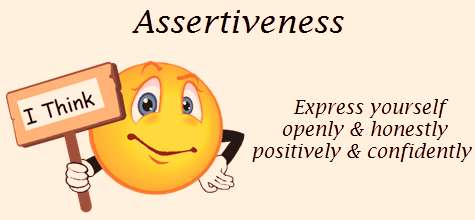Alternative Therapies
- Alternative Medicine
- Access Bars
- Access Body Processes
- Access Consciousness
- Access Energetic Faclift
- Acupressure
- Acupuncture
- Akashic Records
- Ancient Magnetism
- Angel Healing
- Aromatherapy
- Aura Reading
- Ayurveda
- Bach Flower Remedies
- Blueprint Numerology
- Breathwork
- Cosmetic Acupuncture
- Crystal Healing
- Cupping Therapy
- Emotional Freedom Technique (EFT)
- Energy Healing
- Energy Medicine
- Ergonomics
- Family Constellation
- Face Reading
- Fengshui
- Gaiadon Heart
- Geomancy
- Heal Your Life
- Graphology
- Holistic Solutions
- Holy Fire Reiki
- Jesus Reiki
- Jikiden Reiki
- Jin Shin Jyutsu
- Karuna Reiki
- Karmic Healing
- Homeopathy
- Ho'oponopono
- Humkara with Haleem
- Hypnotherapy
- Inner Child Therapy
- Lama Fera
- Lenormand Cards
- Light Language Healing
- Law of Attraction
- Manual Therapy
- Matrix Reimprinting
- Metaphor Therapy
- Meditation
- Mediumship
- Melchizedek Method
- Merlin Trinity Healing
- Merkaba Healing
- Money Reiki
- Motivational Counseling
- Mudra Healing
- Naturopathy
- Neuro Linguistic Programming (NLP)
- Numerology
- NumeroVastu
- Oracle Cards
- Panchakarma (Ayurveda)
- Panchkarma Holistic Healing - Mind Control
- Past Life Regression
- Pendulum Dowsing
- Physiotherapy
- Pranic Healing
- Pranic Psychotherapy
- Pythagorean Numerology
- Quantum Touch Healing
- Pyramids
- Reiki
- Rudraksh
- Runes
- Soul Plan Reading
- Sound Healing
- Star Magic Healing
- Space Clearing
- Silva Mind Control Method
- Sujok therapy
- Tarot
- Tera MaiTM Seichem
- Tea Leaf Reading
- Theta Healing
- Twin Flame Healing
- Twin Hearts Meditation
- Unani Medicine
- Yoga
- Wicca
- Womb Healing
Diseases & Conditions
- Acne & Pimples
- Allergies
- Arthritis
- Asthma
- Behavioural Disorders
- Cancer
- Dandruff
- Diabetes
- Emotional Problems
- Gallstones
- Gastritis
- Hairloss
- Heart Diseases
- Hormonal Problems
- Hypertension
- Immune Disorders
- Infections
- Infertility
- Jaundice
- Kidney Disorders
- Liver Disorders
- Menstrual Disorders
- Migraine
- Neck & Back Pain
- Obesity
- Osteoporosis
- Peptic Ulcer
- Prevention
- Prostate Problems
- Psoriasis
- Sexual Dysfunctions
- Sinusitis
- Sleep Disorders
- Skin Diseases
- Stress
- Thyroid Disorders
- Ulcerative Colitis
- Urinary Infections
General Wellness
Assertiveness Training in Vile Parle
Abhay Thakkar

Abhay Thakkar is the first NLP trainer from India to provide New Code NLP as well as NLP training courses in India, certified by co-creator of NLP and co-developers of New Code NLP. He facilitates Internationally Certified New Code NLP/ NLP courses in Vile Parle, Delhi, Bangalore and others cities in India and abroad...

Sajid Ahamed

Sajid Ahamed is a "Certified trainer of NLP" and Founder of Inner Peace Life Coaching Pvt Ltd, India. He organizes Grinder approved training in India and the Middle East. He is a firm believer in high performance.


Effective communication and assertiveness - A guide for students
Do you find it difficult to say 'No'? Can you ask for what you want? Do you often feel you're being treated like a doormat? Do people sometimes say they find your reactions aggressive? Do you feel guilty if you think you haven't been nice enough?
If you identify with some or all of these statements, you may want to develop ways to think, communicate and behave more assertively.What is assertiveness?
Being assertive means respecting yourself and other people; seeing people as equal to you, not better than you or less important than you. The goal of assertive behaviour is to stand up for your rights in such a way that you do not violate another person's rights. It is achieved through open, direct and honest communication, valuing others, listening, respecting, problem solving and negotiating with other people.
Becoming more assertive does not mean that you always get what you want, but it can help you achieve a compromise. Remember - you can change yourself but you can't change other people. Even if you don't get the outcome you want, you will have the satisfaction of knowing that you handled the situation well.
It can be helpful to distinguish between three sorts of behaviour: passive, aggressive and assertive.
Passive behaviour is often about pleasing other people and avoiding conflict. A passive person behaves as if other people's needs are more important and other people have more rights and more to contribute.
Student A can,t say 'No'. He always lets people borrow his lecture notes - even if he needs them himself. A believes that he should help other people, and worries that they won't like him if he doesn't do what they want.
Eventually A gets tired of allowing himself to be treated like a doormat. He thinks about how to say 'No' and practises with a friend. Next time someone wants to borrow his work he replies pleasantly, but firmly: 'I'm not going to lend my notes any more'. A is surprised to find that he doesn't feel as guilty as he expected about refusing.
Student B finds it difficult to ask for what she wants. If she gets stuck with an assignment she spends hours struggling, rather than asking a friend for help. B thinks: 'I should be able to do it myself. He'll think I'm stupid. Anyway, I expect he's too busy...
When B stops to think she remembers that she has helped her friend in the past. She realises that she doesn't have to do everything herself: it's OK to ask for help. B decides to ring her friend, and says to herself: 'If he's busy today I'll ask if we can meet later this week.
Aggressive behaviour is often about winning: sometimes at other people's expense. An aggressive person behaves as if their needs are most important and they have more rights and more to contribute than other people.
Student C hates being criticised. When her flatmate points out that C's washing up has been in the sink for three days, she reacts aggressively: 'You're always picking on me. Anyway, you haven't cleaned the bath for ages, and I was the last one to empty the bins, and...' The conversation escalates into a row and the ill-feeling lasts for days.
C recognises that being defensive hasn't helped the situation and thinks about how she could respond differently. She decides that when criticism is justified (as it was over the washing up) she could say something like: 'I'm really sorry. Is it OK if I sort it out this evening?' This acknowledges the criticism and suggests a way to solve the problem - as long as the washing up gets done!
(If criticism is unfair, it's easy to react defensively and aggressively. An assertive response is to listen to the criticism and acknowledge the other person's point of view before explaining how you see the situation.)
The assertive responses in these scenarios are based on a belief that everyone has the right to be treated with respect; to have and express feelings and opinions; to be listened to and be taken seriously; to say 'no' without feeling guilty; to make mistakes; to ask for help; to change their mind; to ask for what they want; to set their own priorities - and to choose not to assert themselves.
How to become more assertive
Improving your assertiveness skills takes time and practice. Change isn't easy, and sometimes it can feel risky - especially when things don't work out as well as you hoped. Some things to think about:
- Body language. How you stand or sit, the gestures you use, how you look at someone and your voice are important. They help convey how you see yourself in relation to the person you are talking to. If you are hunched and awkward, speak in a whisper and avoid eye contact, you are suggesting that the other person is more important than you are. If, on the other hand, you stand too close to someone and shout in their face, they are likely to feel you are being aggressive! Someone communicating assertively will stand or sit in an upright, relaxed way, establish eye contact and have an open expression. Speaking in a warm but firm voice, with an even tone, will help you make your points clearly.
- 'I' statements such as 'I feel...' 'I think...' 'I would like...' show that you are taking responsibility for your own feelings, rather than blaming someone else (eg 'You make me feel...') or taking responsibility for their feelings.
- Timing. It's important to try when you feel ready. It may not be a good idea to try when you are more stressed than usual; on the other hand, it's important not to put off making changes.
- Practice. Learning to be more assertive takes practice. You can try out assertive responses in front of a mirror, or get a friend to give you feedback and suggestions. It's also important to think about how the other person may react, and how you might cope with this.
If you have decided that you would like to communicate assertively, it can help to adopt a 'step by step' approach like the one below.
1. Start by understanding your usual mode of communication. Are you passive, aggressive or a mixture? What influences the way you behave: fear of not being liked? feeling you have to be perfect? anxiety about being criticised? Think about a situation. How could you deal with it differently? What would you like to happen?
2. Identify an opportunity to behave differently. It's best to start with something fairly unimportant, rather than something you care deeply about. (Remember, you can't change other people.)
3. Ask yourself what you want to achieve. Is it realistic? Will it help solve a problem?
4. Decide what you want to say. Think about using 'I' statements and try to be as specific as you can. ( eg 'I'd like to go to the cinema' rather than 'Shall we go out tonight?') When you speak to the other person, leave time for them to listen and respond.
5. Support what you are saying by how you say it. Think about your body language and your voice. If what you are saying is serious, look serious - smiling may give the message that it's not important.
6. If the other person doesn't seem to be listening, or tries to sidetrack you, stick to your point. Repeat it calmly until you feel that you are being heard.
7. Listen to the other person's opinion and if necessary see if you can negotiate a compromise.
8. Reflect on the conversation afterwards. Are you satisfied with the outcome? Would you do anything differently next time?
Stumbling blocks
At first, trying to approach situations assertively may feel unnatural. It's important not to give up because you feel awkward, or if a situation doesn't turn out the way you hoped. Anticipating some of the difficulties will help you feel more in control:
- Make time to think about how you are feeling. For example, the first time you say 'No', you may feel guilty. You may be tempted to backtrack to make this guilty feeling go away. Try to put the feeling into perspective, eg by thinking about what is likely to happen (rather than what you fear will happen).
- Slow down so that you don't react in a 'knee jerk' way as you have always done. For example, next time someone asks you what you want to do, rather than saying 'I don't mind...' try taking a deep breath and giving yourself space to think about what you really would like.
- Other people may not always welcome your efforts to change. Think about how you feel about this, then question them respectfully about their response. If you feel that people are trying to put you down or criticise you unfairly, try not to react by accepting the criticism (passive) or counter-attacking (aggressive). Refuse to take the bait and continue to stick to your point.
- Some situations involve a power imbalance - eg going to see a tutor, or attending an interview. It can be useful to remember that however important they are, the other people are human beings like you, and the principles of mutual respect should still apply. That said, some people use their authority disrespectfully - and even the most assertive people can sometimes feel intimidated.
- It is harder to communicate clearly and effectively if you are stressed, tired or unwell. Sometimes it can be helpful to let people know how you are feeling, and perhaps postpone a difficult discussion until a better time.




